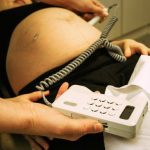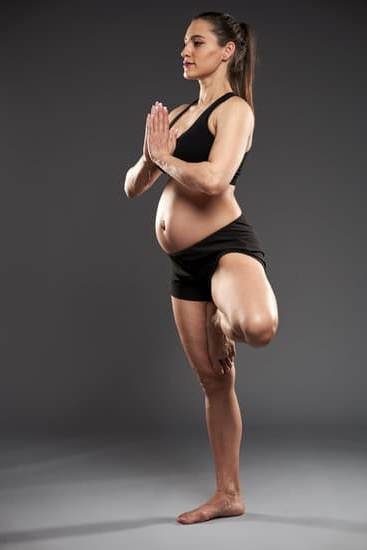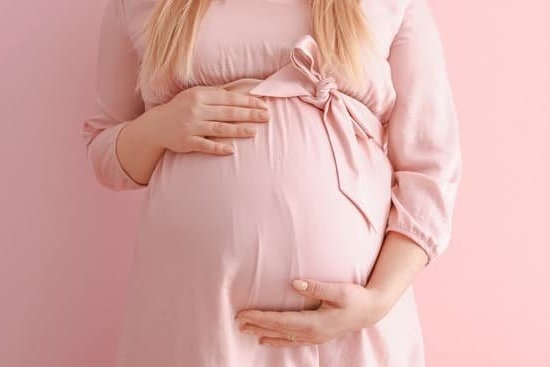When does pregnancy fatigue start is a common question among expecting mothers as they navigate the physical and emotional changes that come with carrying a child. Pregnancy fatigue refers to the overwhelming sense of tiredness that many pregnant women experience, often beyond what they would normally expect. Understanding when this fatigue begins is crucial for expecting mothers to manage their health effectively throughout their pregnancy journey.
During early pregnancy, women may start experiencing various symptoms such as morning sickness, mood swings, and of course, fatigue. It’s important to note that fatigue in pregnancy is more than just feeling tired from a lack of sleep or a busy day. This type of tiredness can be more relentless and pervasive, affecting daily activities and overall well-being. Recognizing these symptoms as potential signs of pregnancy fatigue can help women seek appropriate support and care.
While every woman’s experience with pregnancy fatigue may vary based on individual factors, medical research suggests that it typically starts around the first trimester. This is often due to hormonal changes, increased blood production to support the growing baby, and physical adaptations in the body. By providing a general timeframe for when to expect this fatigue to kick in, women can better prepare themselves and implement coping strategies to help manage it effectively throughout their pregnancy.
Early Pregnancy Symptoms
Pregnancy is an exciting and life-changing experience for women, but it also comes with a host of physical changes and symptoms. One of the most common early signs of pregnancy is fatigue. Many women may overlook or misconstrue this fatigue as just feeling tired due to their busy lives.
However, it is essential to recognize that pregnancy fatigue is different from regular tiredness. This overwhelming feeling of exhaustion can be one of the first indicators that a woman may be pregnant.
Fatigue in early pregnancy usually begins around 6 weeks gestation, though some women may start experiencing it even earlier. The body undergoes significant hormonal changes during this time, which can contribute to feelings of extreme tiredness.
Additionally, increased blood production, changes in metabolism, and the body’s effort to adjust to the demands of pregnancy can all play a role in making expectant mothers feel more fatigued than usual. Understanding when pregnancy fatigue starts can help women prepare for the challenges ahead and make necessary adjustments to their daily routines.
It is important for pregnant women to listen to their bodies and prioritize self-care during this crucial time. Taking naps when needed, staying hydrated, eating nutritious foods, and incorporating light exercise into daily routine are some ways to manage pregnancy fatigue effectively. Seeking support from loved ones and discussing any concerns with healthcare providers can also help in coping with the demands of pregnancy-related fatigue.
| Statistics | Facts |
|---|---|
| 6 weeks gestation | Start of pregnancy fatigue |
| Hormonal changes | Contribute to extreme tiredness |
| Nutritious foods | Help manage pregnancy fatigue |
When Does Pregnancy Fatigue Start
Pregnancy fatigue is a common symptom experienced by many expectant mothers during their pregnancy journey. It goes beyond just feeling tired and can be characterized by a constant state of weariness that may impact daily activities. Understanding when pregnancy fatigue starts is essential for expectant mothers to better prepare themselves and take necessary steps to cope with this common symptom.
When does pregnancy fatigue start? Pregnancy fatigue typically begins in the first trimester, around 6-10 weeks into the pregnancy. This is a crucial time as the body undergoes significant changes to accommodate the growth and development of the fetus. Hormonal shifts, particularly increasing levels of progesterone, play a significant role in causing fatigue during this early stage of pregnancy.
To navigate through pregnancy fatigue, here are some factors that may contribute to feeling fatigued during this period:
- Hormonal changes: Fluctuations in hormones like progesterone can lead to feelings of extreme exhaustion.
- Increased blood production: The body produces more blood during pregnancy to support both the mother and baby, which can also contribute to fatigue.
- Physical changes in the body: As the body prepares for childbirth, various physical changes can also take a toll on energy levels.
As expectant mothers experience pregnancy fatigue, it is important to implement coping strategies to manage this symptom effectively:
- Prioritize sleep: Getting enough rest is crucial for combating fatigue. Aim for at least 7-9 hours of sleep each night.
- Maintain a balanced diet: Eating nutritious meals and staying hydrated can help boost energy levels.
- Listen to your body: Take breaks when needed, and don’t hesitate to ask for help from friends or family members.
By understanding when pregnancy fatigue starts and implementing effective coping strategies, expectant mothers can navigate through this challenging symptom with more ease and focus on enjoying their pregnancy journey.
Factors Contributing to Pregnancy Fatigue
Pregnancy fatigue is a common symptom experienced by many expectant mothers, but understanding its onset can help individuals better cope with the physical demands of pregnancy. While it’s normal to feel tired at various points during pregnancy, fatigue may be more pronounced during certain periods. So, when does pregnancy fatigue start?
Typically, the overwhelming sense of tiredness can kick in as early as the first trimester and may persist throughout the entire pregnancy journey. Various factors contribute to this feeling of exhaustion that pregnant individuals often experience.
One significant factor contributing to pregnancy fatigue is hormonal changes in the body. During pregnancy, hormone levels shift rapidly, leading to increased production of progesterone which can have a sedative effect. Additionally, heightened levels of estrogen can also play a role in making expectant mothers feel more lethargic than usual. These hormonal fluctuations are necessary for supporting the developing fetus but can result in feelings of extreme tiredness.
Another contributing factor to pregnancy fatigue is the body’s increased blood production. As a woman’s body prepares for nourishing both herself and her growing baby, the volume of blood circulating in her system expands significantly to support this process.
This increased blood flow means that the heart has to work harder and often leads to feelings of exhaustion. Coupled with physical changes such as weight gain and postural shifts due to the growing belly, it’s no wonder why many pregnant individuals struggle with intense fatigue throughout their pregnancy journey.
| Factors | Contributing to Pregnancy Fatigue |
|---|---|
| Hormonal Changes | Increased production of progesterone and estrogen |
| Blood Production | Body’s increased blood production supporting mother and baby |
| Physical Changes | Weight gain, postural shifts, and increased strain on the heart |
Coping Strategies for Pregnancy Fatigue
Pregnancy fatigue can be a challenging symptom to navigate, especially for expectant mothers who are also juggling other responsibilities. Fortunately, there are various coping strategies that can help alleviate some of the exhaustion that comes with growing a new life. Here are some tips and advice to consider:
- Rest Whenever Possible: Make sure to prioritize rest and listen to your body when it tells you that you need to slow down. Consider taking short naps during the day or going to bed earlier at night.
- Stay Hydrated and Eat Well: Proper hydration and nutrition can play a significant role in combating fatigue. Ensure you are drinking enough water and consuming nutrient-dense foods to keep your energy levels up.
- Stay Active: While it may seem counterintuitive, engaging in light exercise or regular physical activity can actually boost your energy levels. Consider going for short walks, practicing prenatal yoga, or swimming as ways to stay active.
In addition to these coping strategies, incorporating relaxation techniques into your daily routine can also help manage pregnancy fatigue. Techniques such as deep breathing exercises, meditation, or gentle stretching can promote relaxation and reduce stress levels. It’s important to find what works best for you and incorporate these practices regularly into your schedule.
Remember that every pregnancy is unique, so what works for one person may not work for another. Don’t be afraid to experiment with different coping strategies until you find the ones that resonate with you the most. Prioritizing self-care during this special time is essential for both your well-being and the health of your baby.
When to Seek Professional Help
During pregnancy, it is common for women to experience fatigue due to the various physical and hormonal changes happening in their bodies. While some level of tiredness is expected during this time, it is essential to know when pregnancy fatigue may be a sign of a more serious issue that requires professional help. It is crucial for expecting mothers to pay attention to their bodies and seek medical advice if they feel overwhelmed or if their fatigue becomes debilitating.
Signs That May Warrant Professional Help
While feeling tired during pregnancy is normal, there are certain signs that may indicate a more serious underlying condition. If a pregnant woman experiences extreme fatigue that interferes with her daily activities, persistent feelings of exhaustion despite getting enough rest, or sudden onset of severe fatigue, it is advisable to seek assistance from a healthcare provider. These symptoms could be indicative of conditions such as anemia, thyroid disorders, or other health concerns that need medical attention.
Importance of Consulting a Healthcare Provider
Pregnancy can take a toll on the body, and it is crucial for pregnant individuals to have regular check-ups with their healthcare provider to monitor their overall health and well-being. Consulting a doctor when experiencing excessive fatigue can help ensure early detection and treatment of any underlying issues that may be contributing to the tiredness.
Additionally, healthcare providers can provide personalized recommendations and support tailored to each individual’s needs, helping them navigate through this challenging period with adequate care and guidance.
Encouraging Self-Care and Support
Seeking professional help for pregnancy fatigue is not only about addressing potential health concerns but also about prioritizing self-care and support during this crucial time. Healthcare providers can offer valuable advice on managing fatigue through proper nutrition, gentle exercises, relaxation techniques, and adequate rest. By reaching out for help when needed, pregnant individuals can access the resources and support necessary to ensure a healthy pregnancy journey while effectively managing the challenges of fatigue.
Real Experiences
Many pregnant individuals experience fatigue as one of the early symptoms of pregnancy. This exhaustion can sometimes be overwhelming, leading to questions like “when does pregnancy fatigue start?” For some, this feeling of extreme tiredness begins in the first trimester and can continue throughout the entire pregnancy. It is essential to understand that every person’s experience with pregnancy fatigue can vary, but knowing when it typically starts can help prepare expecting parents for what may lie ahead.
Early Signs of Fatigue
In early pregnancy, women may notice a sudden drop in energy levels that goes beyond feeling normal tiredness. This fatigue is often misunderstood as just needing more rest or sleep. However, it is crucial to recognize that pregnancy fatigue can be more intense and debilitating than regular tiredness. It may affect daily activities, work performance, and overall well-being. Knowing when this exhaustion typically sets in can help individuals differentiate between normal tiredness and pregnancy-related fatigue.
When to Expect Pregnancy Fatigue
Research suggests that most pregnant individuals start experiencing fatigue around 6 to 10 weeks into their pregnancy. This timeframe aligns with the first trimester when hormonal shifts are at their peak, particularly an increase in progesterone levels.
These hormonal changes, along with increased blood production and various physical adjustments in the body, can contribute to feelings of extreme exhaustion. Understanding that this is a common experience for many pregnant individuals can help alleviate concerns and foster self-compassion during this challenging time.
Conclusion
In conclusion, understanding when pregnancy fatigue starts is crucial for expectant mothers as it can significantly impact their overall well-being during this special time. While every woman may experience the onset of fatigue differently, it is generally recognized that pregnancy fatigue can begin as early as the first trimester. This early onset of fatigue often catches women off guard, especially if they are not aware of the common symptoms experienced in early pregnancy.
Factors such as hormonal changes, increased blood production, and physical changes in the body all play a role in contributing to pregnancy fatigue. It is important for women to be mindful of these factors and take steps to manage their energy levels throughout their pregnancy. Coping strategies such as adopting a healthy lifestyle, practicing relaxation techniques, and prioritizing adequate sleep can help alleviate some of the exhaustion that comes with carrying a baby.
As expectant mothers navigate through the ups and downs of pregnancy fatigue, it is essential for them to remember that self-care should be a top priority. By listening to their bodies and seeking professional help when needed, women can ensure a smoother journey through pregnancy. Ultimately, every woman’s experience with pregnancy fatigue is unique, and it is important for them to honor their individual needs and seek support when necessary.
Frequently Asked Questions
How Soon Do You Feel Tired in Early Pregnancy?
In early pregnancy, fatigue can hit quite suddenly and leave you feeling very tired, sometimes as early as the first few weeks after conception. This fatigue is often attributed to hormonal changes and increased demands on your body as it works to support the developing fetus.
What Week Is Pregnancy Fatigue the Worst?
Pregnancy fatigue tends to peak around the first trimester, typically between weeks 6 to 10. During this time, your body is undergoing significant changes to accommodate the growing baby, which can leave you feeling extremely exhausted. However, fatigue can persist throughout pregnancy for some women, but it often improves in the second trimester.
When Do You Start to Feel Pregnant?
Many women start to feel pregnant when they miss a period or experience other early signs such as nausea, breast tenderness, or frequent urination. These physical symptoms coupled with a positive pregnancy test often confirm the realization that you are indeed pregnant. Additionally, heightened emotions or mood swings may also be an indicator of early pregnancy.

Welcome to my fertility blog. This is a space where I will be sharing my experiences as I navigate through the world of fertility treatments, as well as provide information and resources about fertility and pregnancy.





